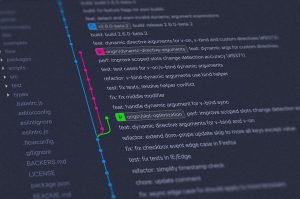Charting a Career Path in Business Analytics: A Comprehensive Guide
5 min read
In the ever-evolving digital landscape, the phenomenon of data explosion is undeniable. This inundation of data is reshaping industries, making data analytics an essential aspect of business operations. Businesses now require astute professionals who can mine, interpret, and convert this enormous data into actionable insights. One such field that is creating a seismic shift in the way industries operate is Business Analytics. Offering a high level of flexibility, scope for growth, and opportunities across various industries, a career in Business Analytics can be incredibly rewarding. This comprehensive guide aims to navigate you through the process of charting a successful career in this field.
Understanding Business Analytics
At its essence, Business Analytics refers to the systematic examination of a business’s data. The main objective is to make effective, knowledgeable choices to stimulate business expansion and effectiveness. It merges methods from data administration, business intellect, and sophisticated statistical analysis. This interdisciplinary method enables experts to forecast market patterns, enhance business procedures, and enhance overall performance. Consequently, business analytics has emerged as a key foundation for numerous organizations, rendering a profession in this field a superb option for individuals with a strong inclination for data analysis and business planning.
Essential Skills Required in Business Analytics
To venture into business analytics, certain skills are paramount:
Analytical Skills
This is a key competency every business analyst must possess. Analytical skills involve the ability to collect, organize, visualize, and interpret data. This ability forms the crux of a business analyst’s role, helping them make strategic decisions that align with business goals and market trends.
Technical Skills
A business analyst should have expertise in specific programming languages like SQL, Python, and R. Familiarity with software like Tableau, SAS, and Hadoop can also be advantageous. This software and languages are fundamental to data manipulation, allowing analysts to analyze extensive amounts of data and extract valuable observations.
Business Skills
An understanding of business principles, strategy, and acumen is crucial. This understanding helps analysts relate their technical skills to business needs and objectives. It allows them to align their data findings with business goals, making their insights more valuable and actionable.
Communication Skills
As an analyst, you need to relay complex findings in a comprehensible manner to various stakeholders. Excellent communication skills, both written and verbal, are therefore vital.
Educational Pathways to Business Analytics
The traditional path to a career in Business Analytics involves obtaining a degree in Business Analytics, Statistics, Economics, or a related discipline. However, in today’s competitive job market, these credentials may not be enough. It is crucial to complement your formal education with specialized courses that provide a deeper understanding of specific areas within the field.
For beginners in the field, enrolling in Data Science Course can establish a strong foundation for individuals. These courses provide a comprehensive introduction to the subject, covering fundamental concepts and equipping you with vital skills such as extracting valuable information from data, making informed predictions, and presenting data visually.
Once you have mastered the fundamentals, furthering your education by pursuing a business analytics course could be a prudent choice. This advanced program offers an in-depth comprehension of intricate topics such as machine learning, artificial intelligence, and the analysis of large datasets, preparing you for more challenging roles within the industry.
Key Job Roles in Business Analytics
Armed with the necessary skills and qualifications, several rewarding job roles await you in the field of Business Analytics:
Data Analyst
A data analyst’s role involves helping businesses make better decisions by interpreting their data. They utilize various statistical tools to sift through data, draw insights, and present them in a digestible format to aid decision-making.
Business Intelligence Analyst
Business Intelligence Analysts strategize and implement BI tools and systems. They use data to provide insights into business operations, helping to streamline processes and increase efficiency.
Data Scientist
Data Scientists stand at the apex of the data analytics hierarchy. They employ advanced statistical techniques to generate insights, make predictions, and build data-driven solutions. Their work often involves complex problem-solving, machine learning, and AI.
Data Architect
Data Architects design, create, deploy, and manage a company’s data architecture. They ensure the data management and storage systems are robust and secure.
Quantitative Analyst
Quantitative Analysts, often employed in finance, use statistical models to solve complex financial problems. They play a crucial role in risk management and financial forecasting.
Also read: How to Become Full Stack Developer in 2023?
Enhancing Your Career in Business Analytics
In the dynamic field of Business Analytics, it’s not enough to rest on your laurels once you have gained a specific position or level of expertise. The industry is in a constant state of flux, with new methodologies, tools, and applications of data emerging frequently. Therefore, it’s essential to keep growing and learning.
Lifelong Learning
Regularly updating your skill set is vital in the realm of Business Analytics. With the advancement of technology and the introduction of new software, there are always new skills to acquire. Online courses, webinars, and certification programs can keep you abreast of the latest trends and techniques in the field.
Hands-On Experience
While theoretical knowledge is important, nothing beats hands-on experience. Seek opportunities to work on different projects that challenge your current skill set. This could involve volunteering for new initiatives at your workplace or even working on personal projects or competitions.
Networking
Building a strong professional network can provide immense benefits. It can open doors to new opportunities, allow for knowledge exchange, and provide exposure to different perspectives within the industry. Attend industry workshops, networking events, and join online forums to connect with like-minded professionals.
Research
Regularly reading industry publications and research papers can help you stay updated on the latest developments in Business Analytics. This can provide you with new insights that can be applied to your work.
Mentorship
Having a mentor who is experienced in the field can provide guidance and advice that can help accelerate your career growth. A mentor can share insights from their own career, provide feedback on your work, and help you navigate challenges that you might encounter in your career journey.
By following these steps, you can ensure that you are not just growing but thriving in your Business Analytics career. This ongoing growth and adaptation is what can differentiate a good Business Analytics professional from a great one.
Conclusion
The demand for business analytics professionals is rising exponentially. This upward trajectory isn’t slowing down anytime soon, with organizations continually seeking experts who can turn data into actionable insights. By focusing on developing the right skills, continually improving them, and staying in tune with industry trends, you can chart a rewarding career in business analytics. Embrace the challenge, start your journey with a beginner’s course, and level up with a post-graduate course in data science when you are ready. The exciting world of business analytics awaits!






